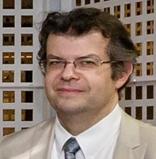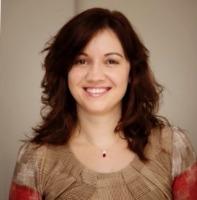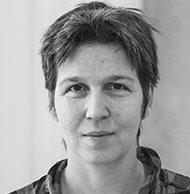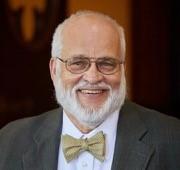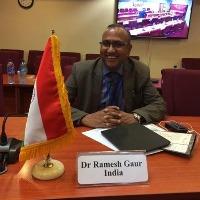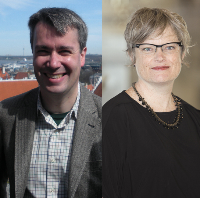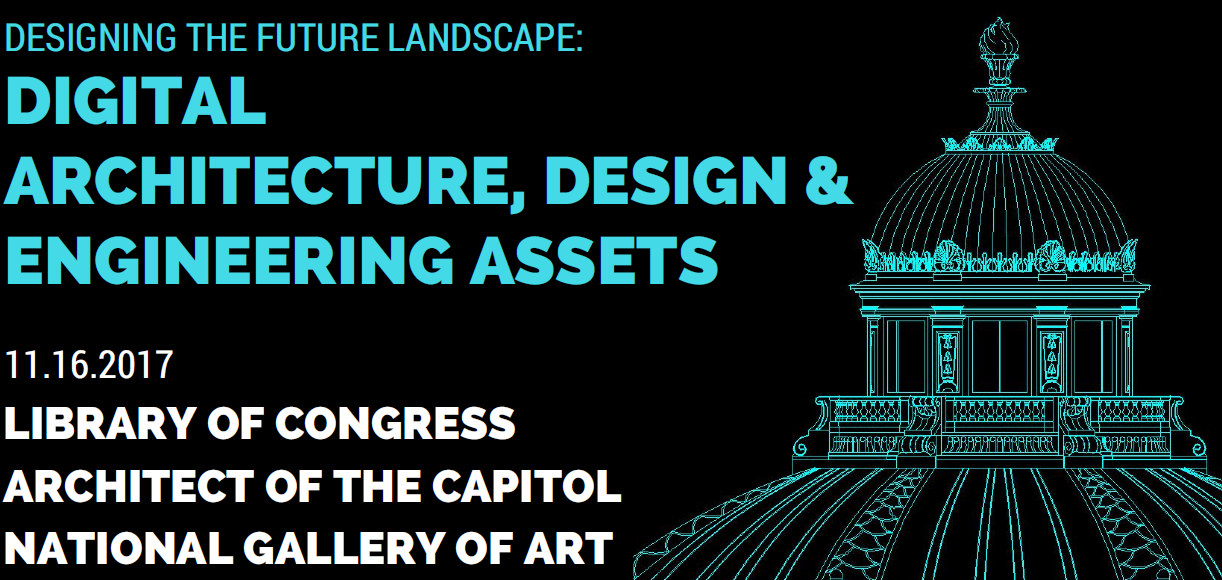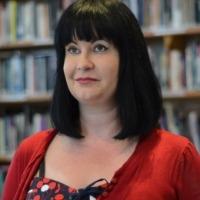DPC
Collaboration is essential for Digital Preservation
Thomas Ledoux is Co-ordinator of Digital Production at the National Library of France
Digital preservation, seen from the outside, may appear as a very technical topic where you only talk about formats, storage, infrastructure and the like.
Indeed, in order to appraise, audit or ingest digital material, a certain degree of technical expertise is needed. But when you follow these steps, it becomes clear that the first requirement is collaborating and building up communities, because what you build should last.
Of course, the first community you need to build is inside your organization: aggregate an internal team. This means you need to define your own goals and start to share a common vocabulary (here is where tools like OAIS or METS can be helpful). A better understanding about the collections and the kind of media you have to deal with is essential. At the same time, you need to pool the means (especially storage infrastructure) so that what you build is sustainable.
And the answer is…
Roxana Maurer-Popistașu is Digital Preservation Coordinator at the National Library of Luxembourg
National Library of Luxembourg’s Digital Preservation challenges
As a national heritage library, the National Library of Luxembourg (BnL) has as a mission to collect, catalogue, enrich, and preserve the national heritage, both in print and in digital form. Since 2002, the BnL has been digitizing documents to not only ensure the optimal preservation of the originals weakened by their age and / or frequent use, but also to promote the published cultural and intellectual heritage, facilitate access to it and support new research methods. The digitized collection includes historical newspapers, books, manuscripts, postcards, and posters from the Luxemburgensia fund (publications from Luxembourg – legal deposit – or issued abroad by Luxembourg residents or in connection with Luxembourg).
Plans are my reality
Yvonne Tunnat is Preservation Manager at the ZBW Leibniz Information Centre for Economics
I was fresh from university when I started my job as a preservation manager in October 2011 at the ZBW. Having taken a module named “Digital Preservation” during my studies of library and information science and after a 9-week-internship at the Digital Preservation Department of the university of Utah, I obviously was the best they could find for the job, although I knew next to nothing and they knew it.
Only, I did not know it. I felt self-confident and well-prepared. I had seen the OAIS slides several times, I knew our ingest was more or less solved and I did not need to think about access as we run a dark archive, so preservation planning was the one big task left on my desk.
There was this software, JHOVE, which miraculously was able to decide if a PDF was ok, flagging the bad ones for later preservation actions. As I knew nothing (like Jon Snow), I took all JHOVE findings as granted.
My preservation plan was as following:
- Gather all bad PDF
- Migrate them to good PDF
- Check if they still look alike
Thanks to JHOVE, the first step was easy. I left the second step to our IT guy, who quickly built a small java program, which transformed all the bad PDF into good ones. At least, after the migration JHOVE could not find anything wrong with them anymore.
But I had to rack my brain about the third step. Somehow I needed to compare the new PDF version with the original to see if there were any changes that would make the data producer angry (like layout changes, missing content etc).
Frisch’s speech in Hamburg and what it tells us about radio archiving
Brecht Declercq is Secretary-General of FIAT/IFTA, Digitisation Manager at VIAA
Hamburg, Germany, almost day on day 40 years ago. Swiss writer Max Frisch, at age 66, went to great lengths to travel from his hometown Berlin to Hamburg. He has accepted to give a speech at the SPD party congress in Hamburg. Frisch has had a good relationship with prominent German Social Democrats such as Willy Brandt and Chancellor Helmut Schmidt for years and the speech may be regarded as a friends service. The party congress is known as "the day the Chancellor asked the poets for advice" - Günther Grass is also present - and takes place in the midst of what the Germans call the German Autumn: a period of far left attacks and kidnappings, from Germans, against Germans. The speech of Max Frisch is a benchmark, even a crisis. To the German Social Democrats Frisch will point out their social democratic responsibility, also as a government party, and also in times when the street's call for severe repression against the very young RAF terrorists sounds particularly loud.
Where is the real risk?
Carl Grant is Associate Dean/Chief Technology Officer at University of Oklahoma Libraries
It’s always one of my goals in my role, to watch emerging technologies and to try and identify those that, per the model Geoffrey Moore established, will “cross the chasm” (https://en.wikipedia.org/wiki/Crossing_the_Chasm ) and have an impact in research and pedagogy. This is always a risky move. You can be totally wrong, spend a fair amount of money and have little to show at the end. Or you can be right and be a leader in helping deploy that technology in addition to being well positioned to capture the historical record surrounding it.
Too many librarians are extremely risk adverse, due to typically working in a publicly funded institution. I understand why that makes so many hesitant to take a risky approach. But I wonder if they’re weighing the right risk? In my mind, I want the library to be seen as a place to come and try out new technology, a place where people can get help evaluating the pluses and minuses of that technology and help in using it to pursue their pedagogical and research goals. I want them to see the library as a place of engagement, exploration, innovation and synthesis. We can’t do sitting on the sidelines. Especially, in a world where technology is advancing as rapidly as it is today. Doing so is to risk being seen as obsolete, a problem I hear all too many colleagues moaning about being the perception of their library on their campuses.
Digital Preservation of Indian Cultural Heritage: Issues and Challenges
Dr. Ramesh C Gaur works at the Jawaharlal Nehru University
At the outset, let me congratulate all on initiating 30th November as the International Digital Preservation Day (IDPD17).
My introduction to digital preservation started in 2005 when I visited Germany with the support of Max Mueller Bhawan. My three-week stay, one week each at Belfield University, Belfield; German National Library Frankfurt; and State Gottingen University Library, Gottingen; provided me opportunity to closely study some of the digital preservation initiatives in Germany in particular and in Europe in general. The interaction with researchers working at project like NESTOR, KOPOL, and REUSE, etc., helped me in learning the basics of digital preservation. After coming back from Germany, I shared my experience in the form of various lectures delivered at various national and international conferences in India. Since then, digital preservation is one of the prime area of my interest.
Digital preservation is a process of preserving both digitized and born-digital contents to a distant future in reusable condition for access by its users. It involves a set of systematic guidelines, processes, strategies, technology and approaches.' The technological obsolescence, shorter and uncertain life-period for current storage media, information glut, and internet revolution are some of the major factors which have made preservation of digital information more complex and challenging. Being a librarian, preservation for access is key to my thought process.
Operationalizing Digital Preservation: An Innovative New Curriculum
Kara Van Malssen is Partner and Senior Consultant at AVPreserve in New York
I work at AVPreserve, a consulting and software development firm, where we focus on developing innovative solutions that advance the ways data and information serve individuals, organizations, and causes. Often, we are asked to come in to an organization and help them assess their digital preservation efforts, in order to move toward expanding capacity, scope, functionality, overall efficiency, or standards-compliance. We start by looking at their current digital preservation practices, evaluating technologies, policies, workflows, procedures, staffing/roles, and other resources. It is not uncommon for us to find that the organization is “stuck” in some respect, struggling to, for example, consistently collect all digital assets of value, implement comprehensive ingest procedures, or store all content in a managed preservation environment. And while the causes of these challenges vary between organizations, lack of funding is generally not the culprit. There are a variety of operational factors that need to be considered in order to implement successful digital preservation processes.
1997-2007: the main challenge after two decades of digital preservation research is the weakness of the professional and institutional networks
Maria Guercio is President of Associazione nazionale archivistica italiana
The main challenge after two decades of good research is the weakness of international and national professional and institutional networks with reference to the capacity of sharing knowledge and solutions.
It is a paradox that in the modern society, interconnected by definition, the international community involved in digital preservation (more robust and interrelated than other professionals and rich of two decades of good research and experience) does not have planned tools and communication channels strong enough to play with continuity its role with success. In fact and indeed, the networked digital world is more fragmentary than in the past, while the archival heritage can survive for future only if our professional and institutional community will be able to put in place a long-term program of research and a stable cooperation framework. The relations we have to create and maintain could be able to re-enforce our capacity of identifying and improve solutions by cooperating and sharing our experiences, our successful achievements, but also our failures.
The lack of continuity and the increasing isolation of the stakeholders is the most critical aspect of the whole sector, but the international funding and coordinating bodies do not seem to be aware of this. For instance, this factor has seriously weakened the European effort in this area and prevented the completion of ambitious and promising projects and implementation plans, at the point that no robust programs for funding preservation projects are in place within Horizon 2020 and no coordination is available to discuss and compare the models developed in the European countries. A similar attitude is present in the ICA initiatives where a temporary group of expert has been created for handling with digital records (DREG, http://www.ica.org/en/our-professional-programme/expert-group-digital-records-dreg), but no resources are available neither for events nor for meetings.
Brushing up on Digital Architecture, Design and Engineering Assets
Kate Murray works for Digital Collections & Management Services at the Library of Congress in Washington DC
On November 16, 2017 the Library of Congress, Architect of the Capitol and National Gallery of Art hosted the Designing the Future Landscape: Digital Architecture, Design and Engineering Assets symposium at the Library of Congress. The programming for the over 140 attendees included panels on lifecycle data management, data flow, access use cases, future-looking approaches and an ADE formats primer.
The presentations were recorded for later distribution on social media platforms, including YouTube, and a report covering the themes of the day will be published in early 2018. See #DigADE2017 on Twitter for on-the-spot reporting during the event and links to published information will be widely distributed when available.
Dear IFI Irish Film Archive of five years ago
Kasandra O’Connell is Head of the IFI Irish Film Archive in Dublin, Ireland
Dear IFI Irish Film Archive of five years ago,
I know you are filled with trepidation at the sudden need for the IFI Irish Film Archive to preserve Ireland’s digital moving image heritage alongside your analogue collections. The switch to digital formats within the film and broadcasting sector in Ireland has been sudden, encouraged by a government sponsored scheme enabling cinemas to change from analogue to digital exhibition. This has left you with no option but to take in digital material as part of your preservation agreements with the two main funders of moving image production in Ireland, the Broadcasting Authority of Ireland and the Irish Film Board. Starting from scratch is scary. No one on your small team has an IT background, you haven’t the necessary equipment and infrastructure to deal with digital deliveries and the thought of making preservation format decisions or developing digital polices is so alien at the moment that it induces a cold sweat. I’m here to give you some reassurance. Five years from now the IFI Irish Film Archive will have made more progress in this area than you could have possibly imagined. While there is a still a lot to do and there are many challenges ahead, the team have accomplished a huge amount in a short time and the archive as you now know it is unrecognisable.































































































































